A nigun or niggun is a form of Jewish religious song or tune sung by groups. It is vocal music, often with repetitive sounds such as "Bim-Bim-Bam", "Lai-Lai-Lai", "Yai-Yai-Yai" or "Ai-Ai-Ai" instead of formal lyrics. Sometimes, Bible verses or quotes from other classical Jewish texts are sung repetitively to form a nigun. Some nigunim are sung as prayers of lament, while others may be joyous or victorious.

Thursday Night in San Francisco is a blues album by Albert King, recorded live in 1968 at the Fillmore Auditorium. This album, together with Wednesday Night in San Francisco, contains leftovers recorded live on the same dates as Live Wire/Blues Power. Thursday Night in San Francisco, released in 1990, contains material recorded on June 27, 1968.
The Bihari brothers, Lester, Jules, Saul and Joe, were American businessmen of Hungarian Jewish origins. They were the founders of Modern Records in Los Angeles and its subsidiaries, such as Meteor Records, based in Memphis. The Bihari brothers were significant figures in the process that transformed rhythm and blues into rock and roll, which appealed to white audiences in the 1950s.
"He's Got the Whole World in His Hands" is a traditional African American spiritual, first published in 1927. It became an international pop hit in 1957–58 in a recording by English singer Laurie London, and has been recorded by many other singers and choirs.
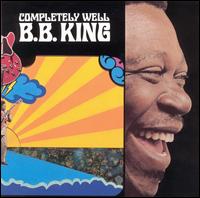
Completely Well, released in 1969, is the seventeenth studio album by blues guitarist B. B. King. It is notable for the inclusion of "The Thrill Is Gone," which became a hit on both the R&B/soul and pop charts.

Guess Who is the twenty first studio album by B. B. King. It was released in 1972 by ABC Records.

Blues on the Bayou is the thirty sixth studio album by B.B. King, released in 1998.

Live at San Quentin is a 1990 live album by blues guitarist B.B. King performed at San Quentin State Prison in Marin County, California.
"Shortnin' Bread" is an African-American folk song dating back at least to the 1890s. James Whitcomb Riley published a poem building on older lyrics in 1900. A "collected" version was published by E. C. Perrow in 1915. It is song number 4209 in the Roud Folk Song Index.
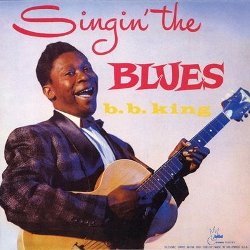
Singin' the Blues is a compilation album by American bluesman B.B. King released in 1957. All of the songs had been issued between 1951 and 1956 on singles by RPM Records and most had reached the Top 10 on Billboard's Race/R&B singles charts. King continued to perform and record several of the songs throughout his career, such as "Every Day I Have the Blues", "Woke Up This Morning", and "Sweet Little Angel". The Bihari brothers released it as King's first album on their Crown Records budget label.
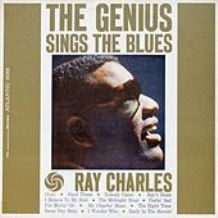
The Genius Sings the Blues is an album by Ray Charles, released in October 1961 on Atlantic Records. The album was his last release for Atlantic, compiling twelve blues songs from various sessions during his tenure for the label. The album showcases Charles's stylistic development with a combination of piano blues, jazz, and southern R&B. The photo for the album cover was taken by renowned photographer Lee Friedlander. The Genius Sings the Blues was reissued in 2003 by Rhino Entertainment with liner notes by Billy Taylor.

Live & Well is the sixteenth studio album by B. B. King released in 1969. It consists of five tracks recorded "Live" at the Village Gate in New York City, and five additional studio tracks.
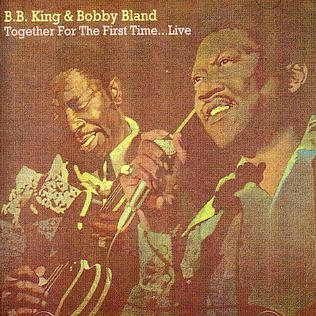
Together for the First Time... Live is a 1974 blues album by singer Bobby Bland and guitarist B. B. King. The duo later recorded Bobby Bland and B. B. King Together Again...Live. Bland and King toured together extensively in the 1970s and 1980s, which did much to keep their careers alive during a period of otherwise popular decline for the blues genre.
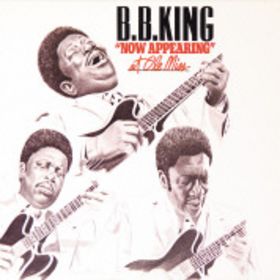
Now Appearing at Ole Miss is a live album by B. B. King, recorded in 1979 and released as a double album on MCA Records in 1980. The live recordings were augmented with overdubs, most notably with percussion instruments. This has been criticized by reviewers as making the album stale, and it is widely regarded as B.B. King's weakest 'live' album. One notable feature, is that the album contains the first use of the bass style of playing known as "slap" by Russell Jackson, who would go on to play in the posthumous "B.B. King Experience Band" with another B.B. King band veteran James "Boogaloo" Bolden.

Diana Ross & the Supremes Sing and Perform "Funny Girl" is the thirteenth studio album released by Diana Ross & the Supremes on the Motown label, released in 1968. Berry Gordy had Diana Ross & the Supremes cover the songs from Barbra Streisand's Broadway musical Funny Girl original cast LP to tie-in with the September release of the feature-film version of the musical, also starring Streisand. The LP was not a success, and, with a Billboard 200 peak of 150, ranks as the lowest-charting of the Diana Ross-led Supremes albums.

Why I Sing the Blues is a 1983 album by the blues guitarist and singer B.B. King. Originally made by MCA Records as a bargain-bin greatest hits compilation, the album is a showcase of King's best work from the late 1960s and early 1970s. The album was released in CD format in 1992.

Alive is the 1969 album from The Nitty Gritty Dirt Band. Liberty Records released this album after the original version of the band broke up and before the next version of the band re-signed with them. John McEuen would later recall that "we did [the album] at the Troubador and there were mountains of equipment on stage because Poco were on the same bill with us." Given McEuen's comment, it appears that the documented performance occurred on either December 6 or 7, 1968. The band would break up within weeks of this show.

Rocks The Blues is the first album credited to musician Ike Turner. Released in 1963 from Crown Records, it contains mostly previously released singles from the 1950s.

Howling Wolf Sings the Blues is a compilation album by blues musician Howlin' Wolf, which was released by Crown Records in 1962. The original album included eight songs recorded for Modern Records between 1951 and 1952, including those tracks that were released as singles by the RPM, and an additional two instrumentals by Joe Hill Louis.

"I'm in the Mood" is a blues song written and originally performed by John Lee Hooker, and first recorded by him in 1951. The original recording is reportedly one of the highest-selling blues records of all time.
















